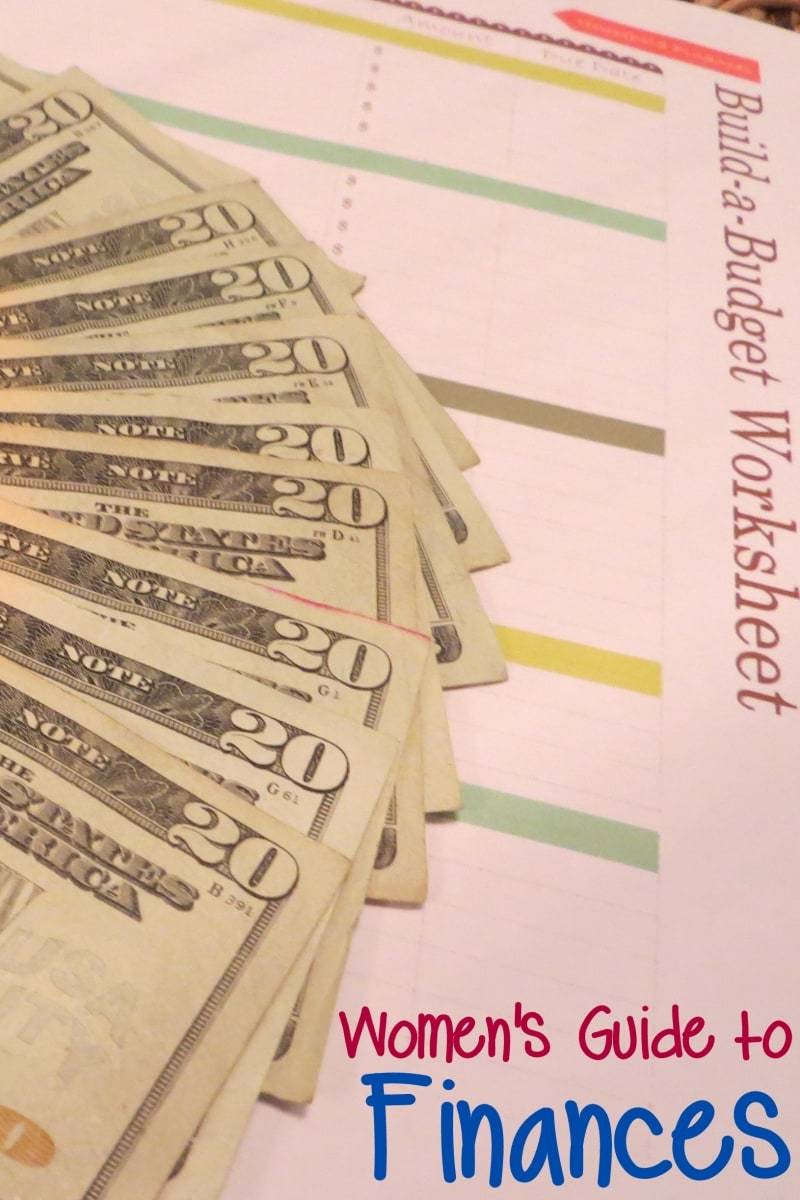I read this really great article about Women and their Finances by Time that really stood out to me.
I was part of a phenomenon that some money experts have dubbed “the female financial paradox.” Translation: Like millions of other women, I was perfectly happy to pinch pennies and hunt down sales, yet I couldn’t muster the slightest interest in big-picture financial planning.
I completely relate to this author. Up until two years ago, we had no long term financial goals and instead I thought that since I was couponing, scrapping, saving, shopping clearance racks, etc that I was doing great for our family financially. I had no clue then that I was missing a huge part of our financial plan that was really important.
The three absolute essentials you need to understand to be able to manage your household finances include setting up your budget, how to save (and not dip into those savings for everyday things) and planning beyond today with retirement and longer term goals for your family.

Keep a Budget
I have talked about using a budget several times before on my blog. Many times, I think we see “budget” and we groan inside. It’s hard to plan out our budget and really stick to it but it’s really important to do! It doesn’t matter if you have a lot of income each month or can’t even make your monthly bills, whatever your circumstance, you need a budget. Each month, start for a plan of where each dollar will go. Rather than just spending your money and wondering what happened, you’ll now have a road map showing you where you are okay spending some money and what needs to be cut back on.
Start with your most important bills first like food, home, and utilities, then keep adding your expenses to your budget until you spend every dollar on paper first. If your income stops before your list of expenses, cut back wherever you can, try to sell some things around your home, or talk to your creditors. If you’re monthly bills are all squared away, tell the rest of your funds to go towards one of your goals like retirement, a family vacation, savings – whatever it may be.
Get Out of Debt
If you have any debt, no matter what it’s from, make it one of your top priorities to get out of debt. You will have so much peace of mind and a much more stable financial situation as you are able to rid your life of debt. Do whatever you can to increase your income, decrease your expenses, and push to pay back all of your debts. Pick up an extra shift or take on a second job if you can and use any extra income you bring in to pay off your debts. Cut up your credit cards so you can’t use them for anything and don’t get any new ones.
Save, Save, Save
Build up your savings starting with a $1,000 emergency fund. Keep at least some of this as cash on hand as you never know when you might need a repair or something similar and not have access to an ATM. Once you have your initial savings, build up your savings until you have enough to cover 6-months of living expenses. This way, should you ever lose a job, get hurt and forced to take time off, or maybe just face a big medical need – whatever it is you have the cash you can use. Once you have 6-months of living expenses saved up, don’t touch it except for emergencies. This money isn’t there for a new car, a fun vacation, or anything else. It would be a shame to blow it on something only to face an emergency the next month and have your savings already wiped clean. After you have completed your 6-months savings, you can plan for other things you wish to save up for such as a car, vacation, or a down payment for a home.
Plan for Your Future
Put aside a little bit of money every month towards your retirement. The sooner you start putting aside money for your future, the larger your retirement number will be. It doesn’t matter if you can only set aside a little bit of money each month, still do it. Aim to contribute 15% of your current annual salary into retirement investments. If you can’t reach that goal, then do what you can do.
In addition to your retirement planning, be savvy enough to also thing about your life insurance needs and other important insurance coverages like long term care insurance. Women tend to end up single and need more care as we age than men. In fact, “Women who reach age 65 can expect to live an average of 20 more years, and those who reach age 75, an additional 13 years. So women are more likely to be single as they age, with nearly half of women age 75 or older living alone, compared to less than one quarter (22 percent) of men”. This statistic came from one of the resources available from Genworth Financial to help women with their finances and planning.
What aspects of your household finances you have been over-looking?
